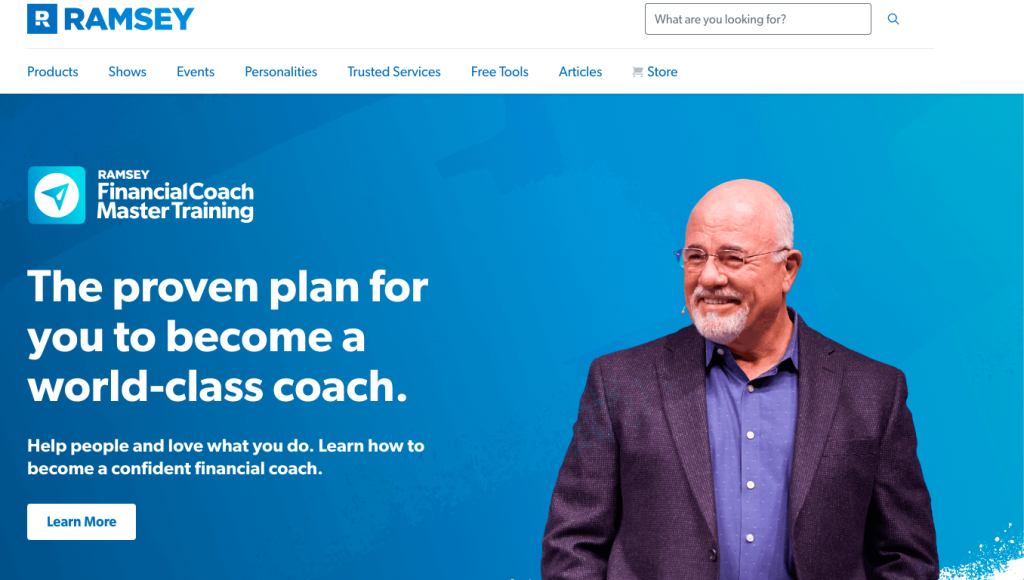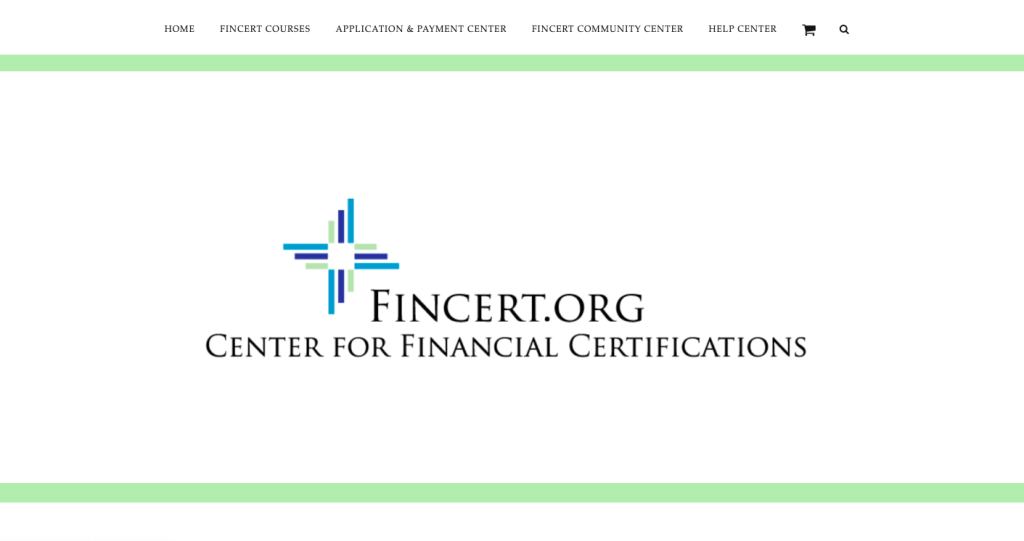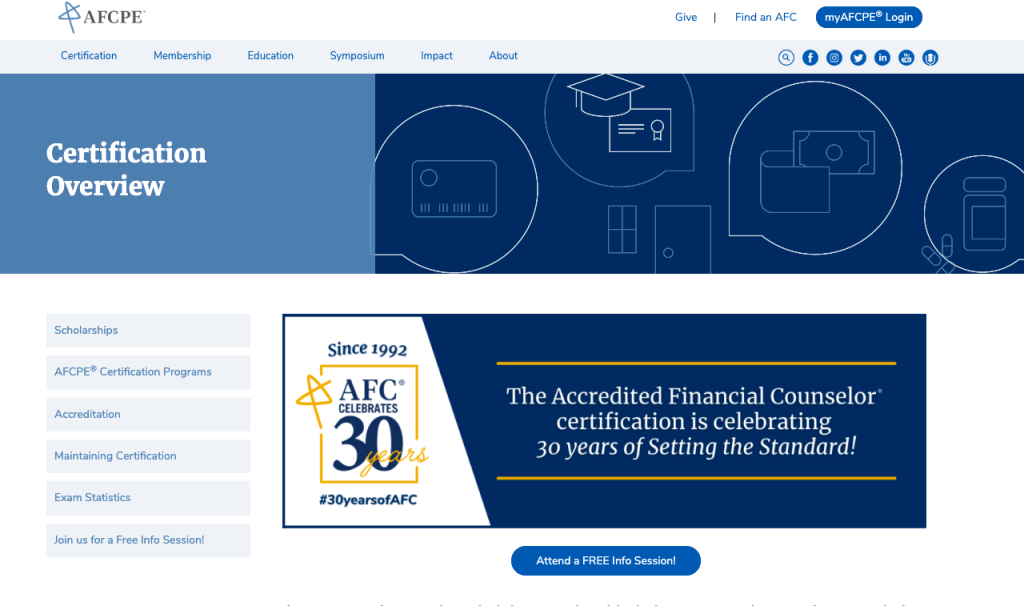Are you passionate about helping others better manage their money to achieve financial freedom? In today’s economic climate, the looming threat of an economic downturn has prompted many people to seek help navigating their financial situation to create stability and growth.
Keep reading to learn more about the financial coaching niche while exploring the top online training and certification programs to equip you with the tools you need to help others.
What Does a Financial Coach Do?
A financial coach works one-on-one with clients to help them set realistic goals and provide them with the tools and support to achieve financial freedom. Financial coaching isn’t just about numbers; it involves understanding people’s behaviors, emotions, and aspirations related to money. They focus on education, behavior change, and accountability to create sustainable strategies that align with the client’s financial goals.
Becoming a financial coach requires empathy, strategic thinking, ongoing support, and a genuine desire to empower others to take control of their financial lives. Whether through personalized financial plans or building a client base, a financial coach plays a pivotal role in guiding individuals toward financial success.
Types of Financial Coaches
The financial coaching profession has evolved to include specialized niches. Here’s an overview of five distinctive types of financial coaches and how they help their clients.
1. Personal Finance Coach
Personal finance coaches work with individuals and families on proper management of money. They aid in creating personalized budgeting plans, debt reduction strategies, and savings goals.
2. Small Business Coach
This type of financial coach specializes in working with small business owners and entrepreneurs. They provide guidance on business budgeting, financial forecasting, cash flow management, and investment strategies tailored to a small business’s specific needs and growth objectives.
3. Retirement Coach
Retirement coaches focus on assisting individuals in planning and preparing for retirement. They help clients understand their retirement needs, investment options, Social Security benefits, and other retirement-related financial matters to ensure a stable and secure transition into retirement.
4. Youth Finance Coach
These coaches work with young adults, teenagers, and children to instill fundamental financial literacy skills. They teach basic money management, savings, budgeting, and wise spending habits to lay the groundwork for a financially responsible future.
5. Debt Specialist
Debt specialists help clients get out of debt by developing customized strategies to pay off debts efficiently. They guide clients in understanding various debt repayment methods, creating manageable payment plans, and staying accountable throughout the debt-elimination process.
How Much Do Financial Coaches Make?
On average, financial coaches in the United States charge between $200-$250 per hour. Annual earnings will depend on the number of clients and sessions. This range reflects a broad spectrum of scenarios, from part-time coaches just starting to established professionals with a solid client base.
Financial coaches often charge more for their services in major metropolitan areas, like New York City, where the cost of living is higher. Earnings may be higher in regions with a strong demand for financial coaching. Specialization will also impact income opportunities. For example, working with high-net-worth individuals or businesses or being certified will increase earning potential.
Additional Income Opportunities
As coaches build their clientele and gain referrals, their income can grow substantially. But there are other income streams available for financial coaches. They include:
- Offering workshops and seminars: Many financial coaches supplement their income by hosting workshops, seminars, or online courses on financial topics.
- Writing and media appearances: Writing blogs, books, and making media appearances as a financial expert boosts a coach’s profile to help them book high-profile clients and sell more products.
- Partnerships and collaborations: Collaborating with other professionals, such as accountants or financial planners, leads to more clients and increased earnings.
The Difference Between a Financial Coach and a Financial Advisor
Both financial coaches and financial advisors have main objectives that include guiding individuals toward financial well-being, but there are a few differences between the roles.
Financial coaches concentrate on behavior and financial education. They help clients understand their spending habits, develop budgets, and work on behavioral changes that lead to better financial decisions. Coaches don’t typically recommend specific investment products.
Financial advisors are experts in managing assets and investments. They analyze a client’s financial situation and suggest investment strategies and products that align with their goals, risk tolerance, and timeline. They also assist with estate planning and other complex financial matters.
Professionals in both roles may hold certifications but financial coaches usually don’t sell investment products. The focus is more on guidance, accountability, and education. A financial advisor must have specific licenses and certifications, like the Series 7 or Certified Financial Planner (CFP), to permit them to recommend and sell investment products. These requirements ensure that they adhere to regulatory standards.
Top Online Training and Courses for Financial Coaching Certification
Pursuing a financial coaching certification provides an opportunity to specialize in various aspects of personal financial management and coaching. These online certifications offer the foundation, credibility, and tools needed to excel in the field. With the rise in demand for financial education and coaching, the following top online training and courses position professionals to meet the growing need effectively.
Certified Financial Planner (CFP)

The certified financial planner certification is the highest certification in the financial industry. CFP professionals help individuals with personal financial planning, covering retirement, taxes, estate planning, and investments. Coursework covers various modules such as financial planning principles, risk management, investment planning, retirement, and estate planning. It aims to equip professionals with the skills to provide strategic financial guidance.
To become a CFP, candidates must complete a CFP Board-registered education program, pass the exam, meet experience requirements, and adhere to the board’s Code of Ethics and Standards of Conduct.
Many college institutions offer online courses that provide more flexibility to professionals who want to study at their own pace. A complete list of accredited programs can be found on the CPF Board website.
Financial Coach Master Training (FCMT)

Created by Dave Ramsey, the Financial Coach Master Training program emphasizes personal finance coaching skills while focusing on the behavioral and emotional aspects of financial decision-making. The course explores topics like budgeting, saving, debt reduction, and financial goal setting. It also covers coaching methodologies, client communication, and creating actionable plans. Although there are no formal prerequisites for acceptance into the program, it helps to have a financial services or counseling background.
The FCMT program is typically available online, with interactive lessons, webinars, and hands-on coaching practice.
Certified Personal Finance Consultant (CPFC)

The Certified Personal Finance Counselor certification equips counselors with the skills needed to understand clients’ financial situations and assist them in making informed decisions. The CPFC course covers various personal finance topics, including budgeting, credit management, savings strategies, investment basics, and retirement planning. A unique aspect of this certification may be its focus on practical applications, enabling candidates to translate theory into practice with clients directly.
Prerequisites for entering the program include six months of relevant experience, a high school diploma or GED, and satisfying the candidate fitness standards. Candidates must also pass an examination to obtain the certification.
The Center for Financial Certifications regulates certifications. Both the course and exam are offered online.
Accredited Financial Counselor (AFC)

The Accredited Financial Counselor certification emphasizes financial education and guidance rather than product-based advice. An AFC certification covers a range of subjects such as financial life cycles, consumer credit, housing decisions, insurance, retirement planning, and financial counseling skills.
To obtain the certification, candidates must complete a self-study program or attend an approved course, pass two exams, and fulfill a 1,000-hour experience requirement. Online AFC courses are readily available to provide students with study guides, practice exams, webinars, and the opportunity to interact with AFC professionals.
Is Financial Coaching the Right Niche for You?
Before delving too deeply into becoming a financial coach, you may want to first confirm that this is the perfect niche for you. Use the free coaching niche worksheet to analyze your best fit. As a VIP member, you’ll also find exclusive interviews about choosing, narrowing, and testing a niche in the resource library.
Helping Clients Achieve Financial Freedom Through Effective Coaching
Financial coaches assume the roles of mentor, educator, and strategist to help clients manage and grow their money. From creating household budgets to making better financial decisions, these coaches dedicate their careers to increasing financial literacy and supporting their clients in building wealth.
If you feel called to guide others in their financial journey, there has never been a better time to explore the diverse opportunities within financial coaching. Your expertise and skill can be the beacon that guides individuals, families, and businesses to financial freedom.


